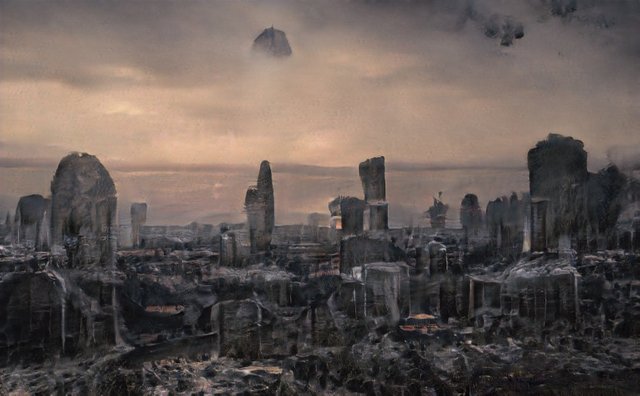How and Why to Start a Dream Journal (Even if you Don’t Believe in Dreams)
As promised, I will interpret the dream as narrated for you in the previous post. I assure you that my interpretation will be wildly different than yours, and with the right mindset, you can draw value from both interpretations. As I’ve said previously, the interpretation of dreams does not easily reveal universal truths, but it can be a guide to discovering what truth is to you. In a word, allow yourself to draw meaning from it. Here’s what I have pulled from the previous night’s dream.
The city.
I appeared in a city, and at some point rejected a friend’s request for a date. In my interpretation, the city was me. I am the one that handles rejection well. It was my subconscious signaling that I’ve grown in regards to social interactions. That’s quite a relief, considering three weeks in quarantine has been enough for me to forget how to enunciate words. Another interpretation may be that the people I’ve encountered in the past several months have challenged me to be honest about what I truly desire and establish healthy boundaries.

The graveyard.
The dream progresses onto the street, and our driver suddenly takes a detour through a graveyard. This one was fascinating, I believe that it symbolizes the recklessness of my risk-taking in pursuit of goals. Trampling over the dead at 45mph, it implies that I haven’t learned from the lessons of my ancestors, or from the mistakes I’ve observed in the lives of others. If I continue to speed ahead and take shortcuts, I may end up in one of these graves sooner than I’d prefer. However, we made it to the other end of the graveyard and returned to the main road without any trouble. That’s luck, reader. I’ve been incredibly lucky for a long time.

The restaurant
We never made it to the restaurant, but that was the goal at the end of the road. I was along for the ride, I gave up some control and let my old friend guide me somewhere unknown. Being honest here, I need to reflect deeper on why it was my landlady who brought me along for the trip. I experienced a lot while living in that house with the fourteen-toed cat on the edge of Asheville, and if I’d take anything away from her presence in the dream, it was that I’m beginning to integrate those final few months in the USA.
How can you say that’s what it meant? Dreams could mean anything.
That’s missing the point. I’m not attempting to prove any absolute truths here. This is my own interpretation of the presentation my neurons have provided me, it’s okay to ascribe meaning to it, and it’s fine to have opposing interpretations of the same event. I’m not dividing by zero here, reality will not break, I promise.
What I’ve really done is reveal what is heavy on my psyche through the points of reference of dream symbology, and I discover interesting thought patterns and connections between ideas along the way. Like words, dreams can point to something. I think why many people recoil from dream interpretation is that they are fearful of what their dreams may be referencing, and that’s understandable. The subconscious isn’t shy, it’ll show you exactly where your fears and weaknesses lie, but it can also reveal strengths and genuine interests you would otherwise be blind or resistant to acknowledge.
Let’s pretend I believe you, but I’ve never analyzed my dreams. Where do I start?
Here is a challenge for you. Open up your go-to word processor and create a new document. Title it something like “Dream Journal; April 2020”. In the document, insert the date and time, and write the following two prompts.
What is one thing I remember from my most recent dream?
What did I feel in that dream?
The first prompt should give you a manageable starting point. Initially, you may not remember anything. Perhaps you’ll feel some resistance to writing anything down because “Dreams just happen, it’s a waste of energy to write them down.” Resist that notion and write in front of your thoughts. Get the memories out before you trample over them with whatever else is bothering you today. This only has to take five to ten minutes, and you’ll get better at it each day.
In the morning, open up your notebook or word document the moment you wake up. Many people find it beneficial to not even get out of bed until you write at least an outline of the dream. Even a passing thought about what you’re going to eat for breakfast is enough to completely derail your short-term memory of the dream. I often lay in bed for a couple of minutes in the exact posture that I woke up in, so as to preserve as much of the dream as possible before I go downstairs to write a summary.
Many people experience a rapid deterioration of dream recall from the moment they wake up, this is another reason why I recommend that you focus on emotions. People’s recollection of central and peripheral details is enhanced by the emotional content of those memories. Another study suggests:
“Emotion enhances memory for information relevant to currently active goals.”
That’s important because, in the end, the purpose of dream analysis is to discover content that is beneficial to our personal growth. In theory, dream recall operates in the same way as the recollection of any other memory and observing emotional responses to dream content will by proxy reveal more of the dream’s content.
That should get you on the right track for both improving dream recall and recognizing details that may prove to be important to you later on. I’ll explain exactly how I go about doing that without relying on other people’s interpretations in a future article.
In the next post, I’m going to draw connections between dream interpretation and Tarot, because these articles aren’t already woo-woo and esoteric enough. If you enjoyed this post, check out my dispatches from the Peruvian Amazon, where I relay my experiences with plant medicine such as Ayahuasca and San Pedro.
I'm on Medium.